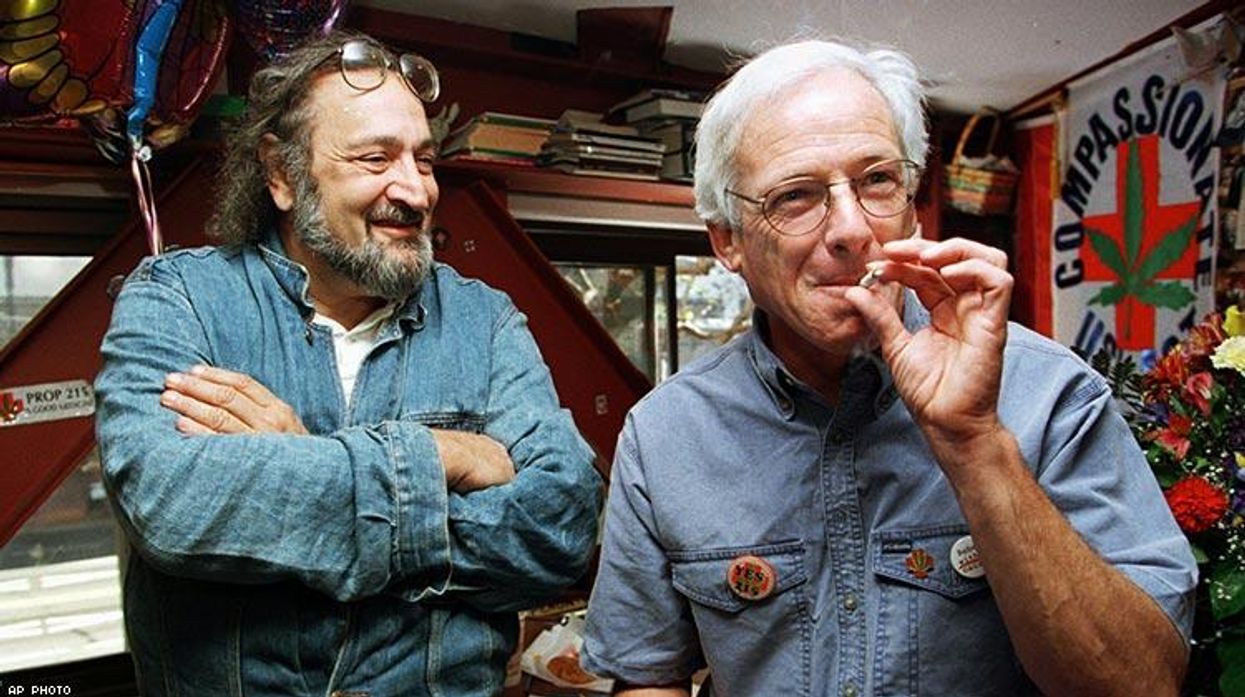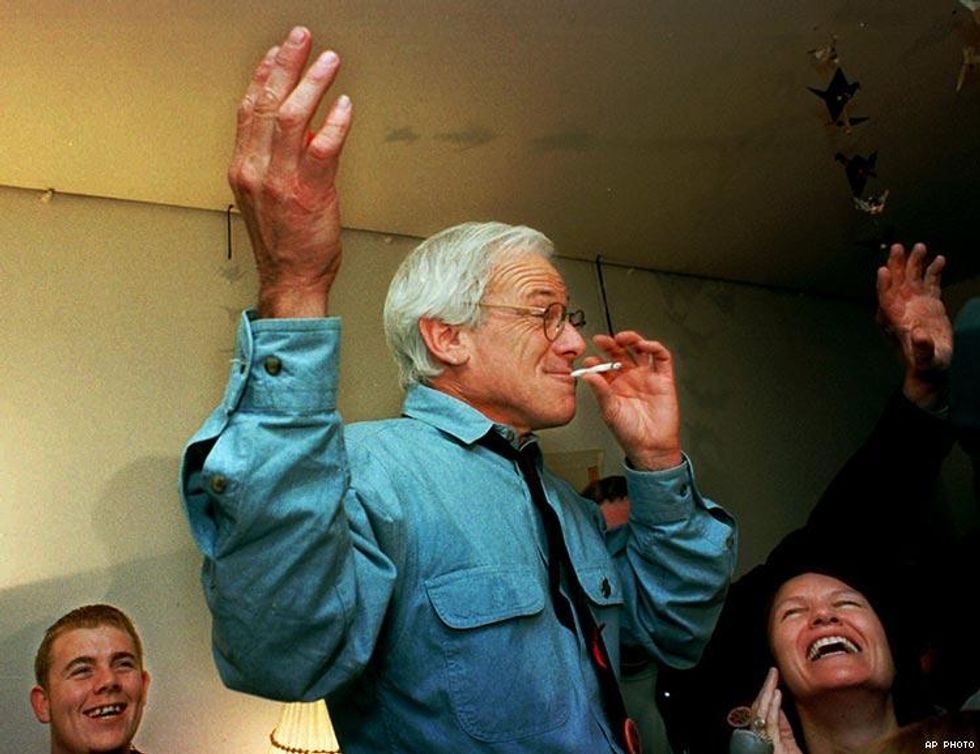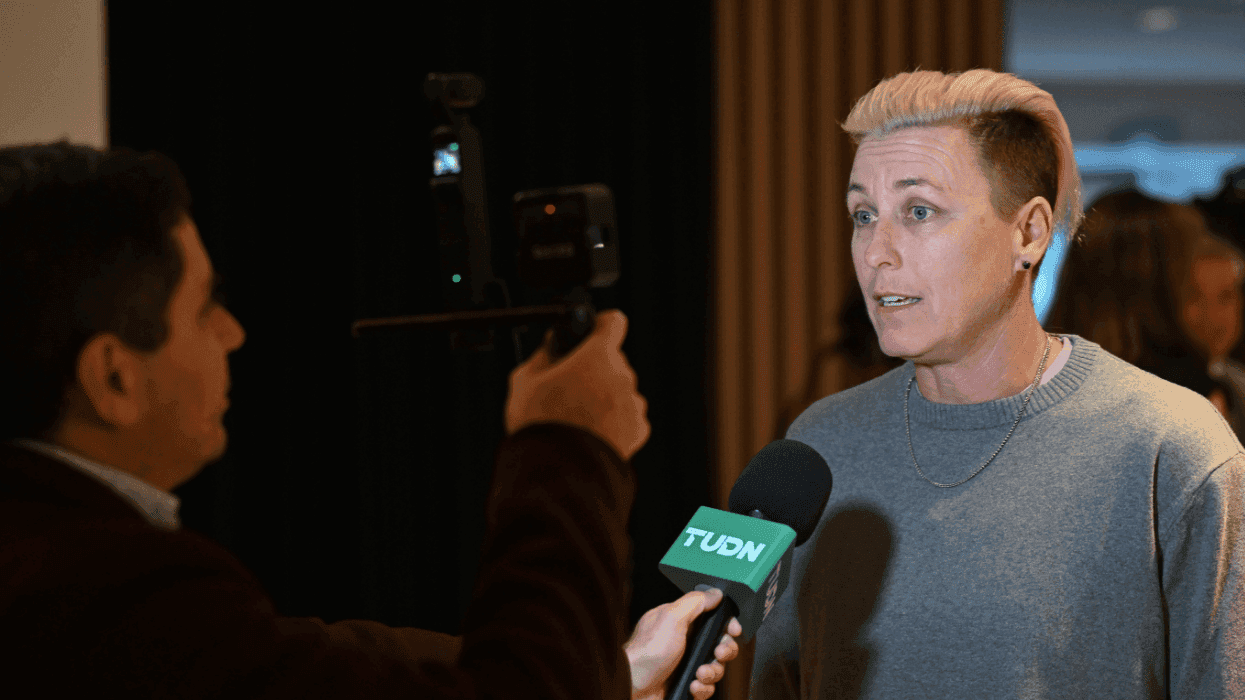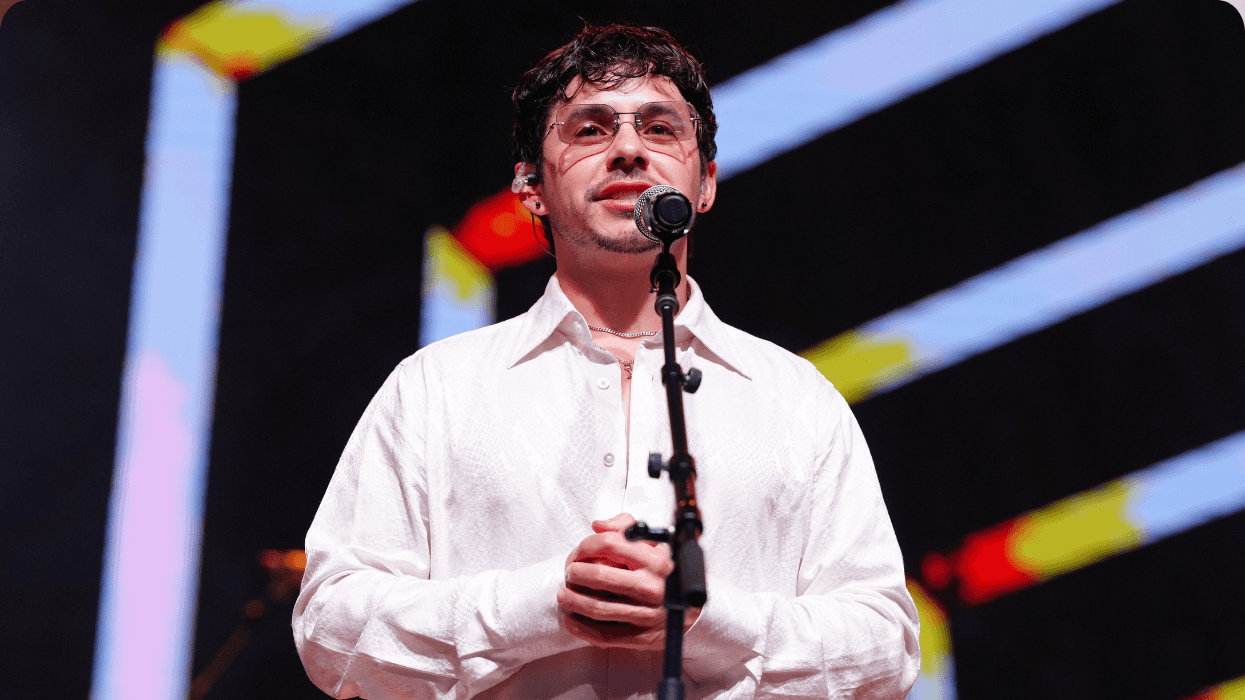"Some people with AIDS have a motto: 'Die high.'"
That was the first sentence of a 1990 Washington Post article titled, "Medical Necessity and Marijuana Use".
For years following the emergence of the AIDS epidemic in 1980, there was little knowledge as to what the virus was and how to suppress it. AIDS was a death sentence, and while smoking marijuana didn't stop the virus from destroying the body, it did increase the quality of life for one's last months following diagnosis.
Marijuana helped with nausea and wasting syndrome. Those who smoked marijuana got "the munchies" and were finally able to consume enough calories to no longer look and feel sick.
That, however, was just one of the many medicinal benefits of smoking marijuana.
"I don't do it to get high," a 37-year-old man living with AIDS told The Post back in 1990. "I never used marijuana before. I use it to get rid of my headaches."
During the 80s, there were hardly any resources for people with AIDS (PWA). Research on the virus moved at a glacial pace because the AIDS epidemic coincided with president Reagan entering office. The Reagan administration was not only dedicated to making severe cuts in domestic spending, the president also proudly decried homosexuality, touting the right wing moralism of the Christian Coalition. In fact, during the first four years of the Reagan administration, the epidemic spread like wildfire through the gay community, and Reagan refused to even announce the words "AIDS."
The callous disregard for the lives of gay and bisexual men was largely what contributed to the lack of research surrounding the virus. That's why PWA turned to cannabis and began advocating for the right to use medical marijuana legally.
The fight for medical marijuana began in 1976, when a court case ruled in favor of the plaintiff, Robert Randall, who used the novel defense that smoking marijuana is a medical necessity. Randall claimed it was the only drug that kept his degenerative glaucoma from rendering him completely blind. Following the ruling, the federal government created the Compassionate Investigational New Drug (IND) Program, dedicated to exploring the beneficial medical effects of marijuana. They permitted a total of 15 patients to join, supplying them all with cannabis.
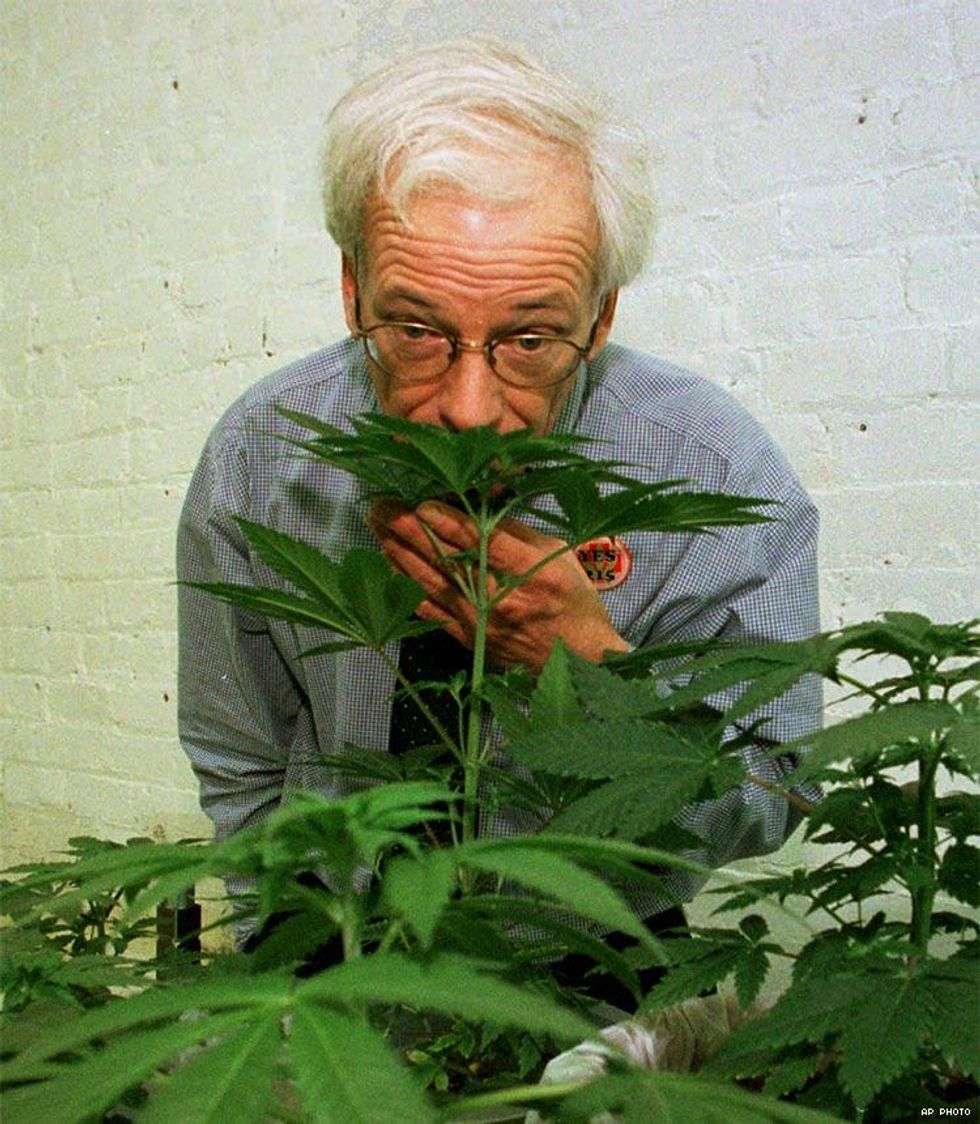
Ken Jenks, a hemophiliac, acquired HIV from a blood transfusion and unknowing passed it on to his wife, Barbara. The two were arrested in Panama City, Florida and charged with serious felony violations: manufacturing marijuana with intent to distribute.
At an AIDS support group, the straight-laced couple was encouraged to smoke marijuana to help with emaciation. Reluctant at first, the couple began to smoke and were able to gain weight and vitality.
While out on bail, the Jenks saw an obituary in High Times, written by Robert Randall, about a man who simply went by "Steve L." Steve was the first PWA to be admitted into the IND program just months earlier. They reached out to the Alliance for Cannabis Therapeutics (ACT) who's number was at the bottom of the obituary. ACT had helped Steve with his legal hearing and entry into the IND program.
Robert Randall, now the founder of ACT, quickly saw the Jenks' value.
They were the perfect, wholesome couple to become the face of the AIDS and marijuana movement. They were straight, monogamous, and high-school sweethearts. Issues surrounding homosexuality, morality, and IV-drug use couldn't be used to attack the married couple.
With Randall, the Jenks got on the IND Program. Together, they created a program called Marijuana/Aids Research Service (MARS) to help other PWA apply for the IND Program to acquire medical marijuana legally.
While this was going on, actually on the exact day that Steve L. became the first person with AIDS to legally receive marijuana, Dennis Peron had his home raided on the other side of the country. San Francisco narcotics officers arrested him, and he was charged with possessing marijuana with intent to sell.
"Now, I've sold marijuana in my life -- lots of it, but I was not selling that night," Mr. Peron wrote in his autobiography, Memoirs of Dennis Peron: How a Gay Hippy Outlaw Legalized Marijuana in Response to the AIDS Crisis. "There were four ounces of the best marijuana in the world in the house" -- but it didn't belong to him. It belonged to his romantic partner, Jonathan West.
At the trial, West confessed that the marijuana was his. All charges against Peron were dropped. Two weeks later, West died from AIDS-related complications.
West's death was a turning point for Peron. He was now motivated to create change.
"I came to San Francisco to find love and to change the world," Peron said in 2015. "I found love, only to lose him through AIDS. We changed the world."
Following his lover's death, Peron immediately began gathering votes for Prop P, which advised "the state of California and the California Medical Association to restore hemp medicinal preparations to the list of available medicines in California."
The proposition passed with 78% of people voting "yes". The resounding support was largely due to the fact that the federal government shut down the IND Program days before the vote. They claimed too many people were acquiring marijuana legally with the helps of the MARS initiative. The decision to shut down the IND Program was portrayed in the press as being heartless. The big bad government was turning its back on a group of hopeless, dying people.
Following the passing of Prop P, Peron opened a "cannabis buyers' club" (CBC) modeled after the AIDS buyers' club, where PWA could obtain medications not yet approved by the FDA in the United States.
Initially one had to have AIDS or cancer to enter the CBC, but soon Peron opened its doors to a people with a range of illnesses and disabilities. The CBC served roughly 9,000 people over the course of four years before it was closed by a judge.
"Watching the old supporting the young and the terminally ill counseling the incurably disabled was an increasingly inspirational sidebar," Mr. Peron wrote in his autobiography. "The club was more than a place to obtain marijuana; for many it became something of an extended family fulfilling important social and emotional needs."
In 1996, Peron co-wrote an initiative, titled proposition 215, which would allow patients throughout the state of California to use marijuana for medical purposes. Prop 215 passed with 56% of the vote.
On January 27 of this year, Dennis Peron passed away at the age of 72.
"No person is more responsible for the legalization of medical marijuana than Dennis," Dale Gieringer, state coordinator of the pro-legalization organization California Norml, told the New York Times at the time of Peron's death. "He was in the right place, at the right time as a gay rights leader at the time of the AIDS epidemic; he had the right experience as a pot dealer, the gumption to go ahead and do it and the trust of the people of San Francisco, who respected his efforts."
And now, the very same magazine that connected the Jenks to Randall, jump starting the marijuana legalization movement on the East Coast -- is going public with a regulation A+ offering. It's now possible for anyone to invest in High Times; the magazine that doesn't simply report on marijuana, but has been inspiring activism for over four decades.


